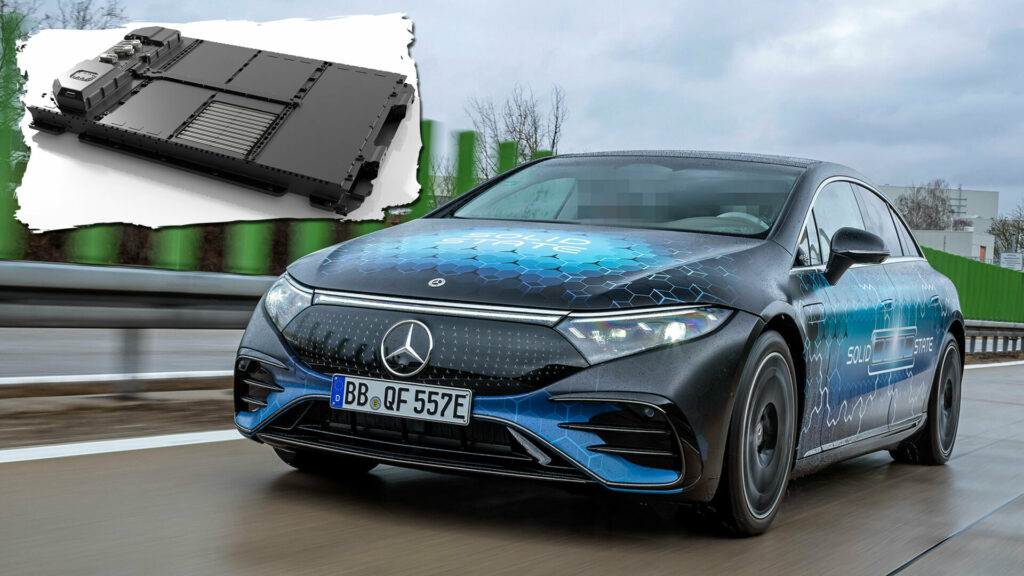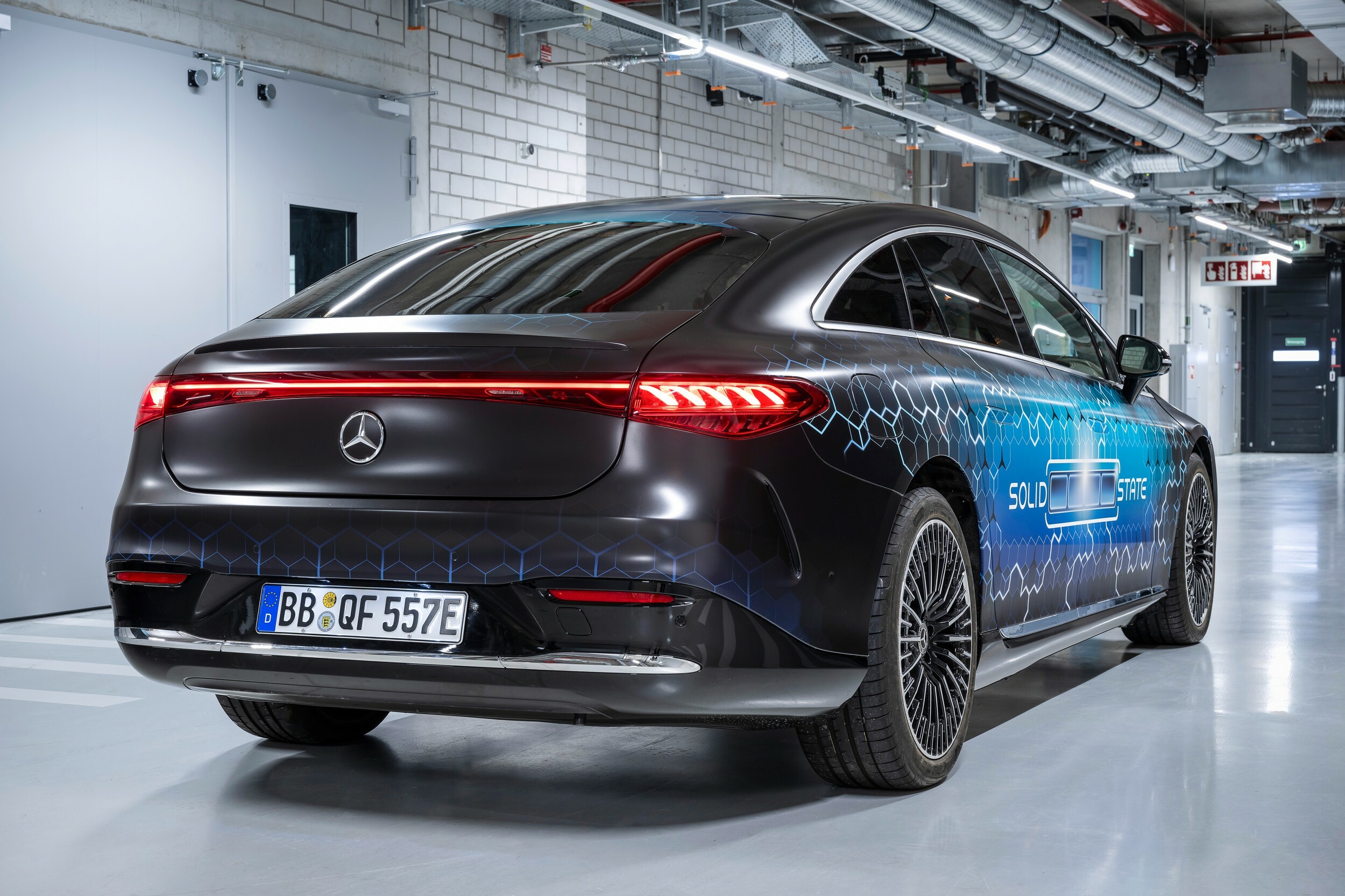- Mercedes has begun testing an EQS equipped with a solid state battery.
- It provides 25% more range than a lithium-ion battery of the same size and weight.
- Solid state batteries offer higher energy densities and safety benefits over traditional batteries.
Solid state batteries are often touted as a holy grail for EVs as they promise to be safer and have higher energy densities than their lithium-ion counterparts. However, they’ve largely been limited to the lab.
That’s starting to change as Mercedes has begun road-testing a “slightly modified” EQS with a lithium-metal solid-state battery. It uses cells from Factorial Energy and sports a floating cell carrier.
More: Dodge Charger Daytona Getting Solid State Batteries By 2026, But There’s A Catch
As the company explained, “When the battery charges, the materials expand, and when it discharges, it contracts.” To support this, the battery has “pneumatic actuators that interact with the cell volume change during charging and discharging, which affects the battery’s performance and lifespan.”
Mercedes went onto say the battery uses a solid electrolyte instead of a liquid one, which enhances cell safety and allows for the use of new anodes like lithium metal. This has the potential to increase the gravimetric energy density of EV batteries up to 450 Wh/kg. That should pave the way for lighter, more compact batteries.
In the case of the EQS, the battery allows for a range of up to 621 miles (1,000 km), which is 25% more than a lithium-ion battery of the same size and weight. In particular, a regular EQS 450+ with a 118 kWh battery pack has a range in excess of 497 miles (800 km) under the worldwide harmonized light vehicles test procedure.
The prototype will be subjected to an assortment of tests in the coming months and Factorial Energy CEO Siyu Huang said, “Being the first to successfully integrate lithium metal solid-state batteries into a production vehicle platform marks a historic achievement in electric mobility. This breakthrough demonstrates that solid-state battery technology has moved beyond the laboratory and into real-world application, setting a new benchmark for the entire automotive industry.”
Her sentiments were echoed by Mercedes’ Chief Technology Officer, Markus Schäfer, who stated “Developing an automotive-scale solid-state battery underlines our commitment to innovation and sustainability.”



















